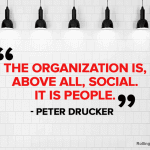Should you Outsource Payroll?
How to use Social Tools in Employee Learning Process?
[authorblog]
[postsociallinks]
When you’re first getting your business off the ground, outsourcing payroll is an effective cost cutting measure.
As your business starts to grow, outsourcing depends on a variety of factors.
What works for one business may not work for another.
Before deciding for or against outsourcing payroll, consider the following factors and how they might impact your business.
The Location Of Your Business
The geographical location or locations of your business play a major role in deciding how to manage payroll for your company. If you have multiple locations spread across the world, it would be difficult to maintain an in-house payroll staff with knowledge of each country’s individual payroll legalities. In this instance, it would be a good idea to use an outsourcing company which provides payroll outsourcing solutions covering all the countries you’re located in.
If you have a single location or all your locations are located in a single state, in-house payroll would be a viable option. However, there are still other factors to take into consideration.
Number Of Employees
A company with only a handful of employees (less than 50) may consider outsourcing to save money. Hiring dedicated payroll staff and implementing payroll software is often too expensive for small businesses, even if they’re located in a single country.
For larger businesses, the cost to outsource payroll increases with the number of employees. If you have a high volume of employees (numbering in the thousands) in a single country, investing in off-the-shelf software and in-house payroll staff is far more cost effective than the per headcount outsourced payroll expenses.
Consider Security
One of the final deciding factors for outsourcing is security. When you outsource payroll, your company is at the mercy of any security measures the outsourcing company uses. If outsourcing is the right solution for your business, choose a company with strong security measures in order to keep all employee data safe.
If security is a major concern and you don’t trust the data to a third party, in-house payroll is your only option. However, it also means you must implement your own security software and policies to ensure data remains protected.
Overall Cost
The main reason companies choose to outsource payroll or use an in-house solution is cost. If you’re business is new with only a few employees, outsourcing takes much of the administrative burden off your shoulders. It’s also extremely cost effective as the per headcount expenses are relatively low as compared to software and staff.
Before deciding to switch one way or another, perform a detailed cost analysis over a several year period. Keep in mind that the cost to outsource will likely rise slightly each year as will the salaries of payroll staff. Consider how many employees you currently have and how many you plan to hire over the analysis period.
Compare the cost to outsource with the cost to implement an in-house payroll system over at least a three year period. Which one is cheaper? Odds are, in-house systems will be higher during the first year, but the cost levels out after that. Add the cost analysis in with the other major deciding factors to determine if outsourcing is the right solution for your payroll.
Conclusion
As with any major change, you should carefully evaluate and plan before incorporating payroll into your HR department. If you’re considering switching to an in-house option, contact us for answers to any questions you might have.
Do you currently outsource your payroll? What are your experiences? Did you switch to in-house processing?
We’d love to hear why or why not you chose to outsource payroll. Let us know in the comments.




